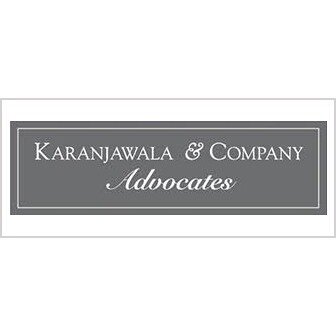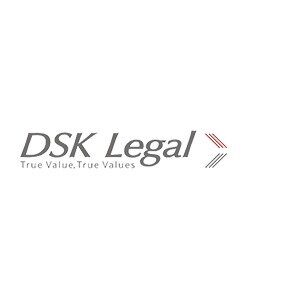Best Land Use & Zoning Lawyers in New Delhi
Share your needs with us, get contacted by law firms.
Free. Takes 2 min.
Free Guide to Hiring a Real Estate Lawyer
List of the best lawyers in New Delhi, India
About Land Use & Zoning Law in New Delhi, India
Land Use & Zoning Law in New Delhi is a set of laws and regulations that dictate how property and land in the city can be used and developed. The goal of these laws is to ensure orderly development of land. Zoning codes typically divide land into different categories like residential, commercial, and industrial. These laws also set guidelines for things like minimum lot size and necessary facilities for all types of land usage. In a city like New Delhi, these laws are crucial for urban planning and managing rapid growth.
Why You May Need a Lawyer
Legal advice may be necessary in several situations relating to land use & zoning. If you want to develop a piece of property but it's against zoning regulations, or if you are facing penalties for improper land use, you may require a lawyer. If your property is being rezoned, or there is a proposed change in land use policies, the legal aspects may be complex and an experienced lawyer can assist in understanding and protesting or supporting such changes. Lawyers can also help in securing variances, permits or address any land use disputes.
Local Laws Overview
The key aspects of local laws regarding land use and zoning in New Delhi are governed by the Delhi Development Authority (DDA) and the National Capital Region Planning Board. Laws state specific uses for defined zones, such as residential, recreational, industrial, and public & semi-public facilities. They also include stipulations on building regulations, height restrictions, offset rules and parking provisions. The Master Plan for Delhi 2021 is another primary document that guides land use and zoning regulations in the city.
Frequently Asked Questions
What is the difference between land use and zoning?
Land use refers to the manner in which properties and land are utilized, while zoning is a means of planning for the land use by assigning certain regulations to the land.
Can zoning affect property value?
Yes, the zoning of a property can greatly impact its value. For instance, commercial zoning usually increases a property's value, while industrial may decrease it.
Can I change the zoning of my property?
Yes, but it's a fairly complex process that generally involves making an application to the local authority, justifying the change, and potentially involving public hearings.
Are there penalties for violating the zoning laws?
Yes, the consequences can range from fines to a stop-work order on your property, and in extreme cases can even include jail time.
What is a land use permit?
A land use permit is a document that gives permission for the use, change in use, or development of land as per zoning regulations.
Additional Resources
The Delhi Development Authority (DDA), the Unified Traffic and Transportation Infrastructure (Planning & Engineering) Centre (UTTIPEC) and the Ministry of Urban Development are major governmental bodies for reference. For legal help, The Bar Council of Delhi & Indian Lawyer's Association are useful resources. Furthermore, it's advisable to refer to the website of Delhi High Court for land & zoning related cases and judgments.
Next Steps
If you need legal assistance regarding Land Use & Zoning in New Delhi, start by consulting with a local lawyer who specializes in this area. Preparing all relevant documents and information beforehand will help your lawyer understand and address your concern more effectively. Always keep a record of your legal meetings and proceedings for future reference.
Lawzana helps you find the best lawyers and law firms in New Delhi through a curated and pre-screened list of qualified legal professionals. Our platform offers rankings and detailed profiles of attorneys and law firms, allowing you to compare based on practice areas, including Land Use & Zoning, experience, and client feedback.
Each profile includes a description of the firm's areas of practice, client reviews, team members and partners, year of establishment, spoken languages, office locations, contact information, social media presence, and any published articles or resources. Most firms on our platform speak English and are experienced in both local and international legal matters.
Get a quote from top-rated law firms in New Delhi, India — quickly, securely, and without unnecessary hassle.
Disclaimer:
The information provided on this page is for general informational purposes only and does not constitute legal advice. While we strive to ensure the accuracy and relevance of the content, legal information may change over time, and interpretations of the law can vary. You should always consult with a qualified legal professional for advice specific to your situation.
We disclaim all liability for actions taken or not taken based on the content of this page. If you believe any information is incorrect or outdated, please contact us, and we will review and update it where appropriate.

















